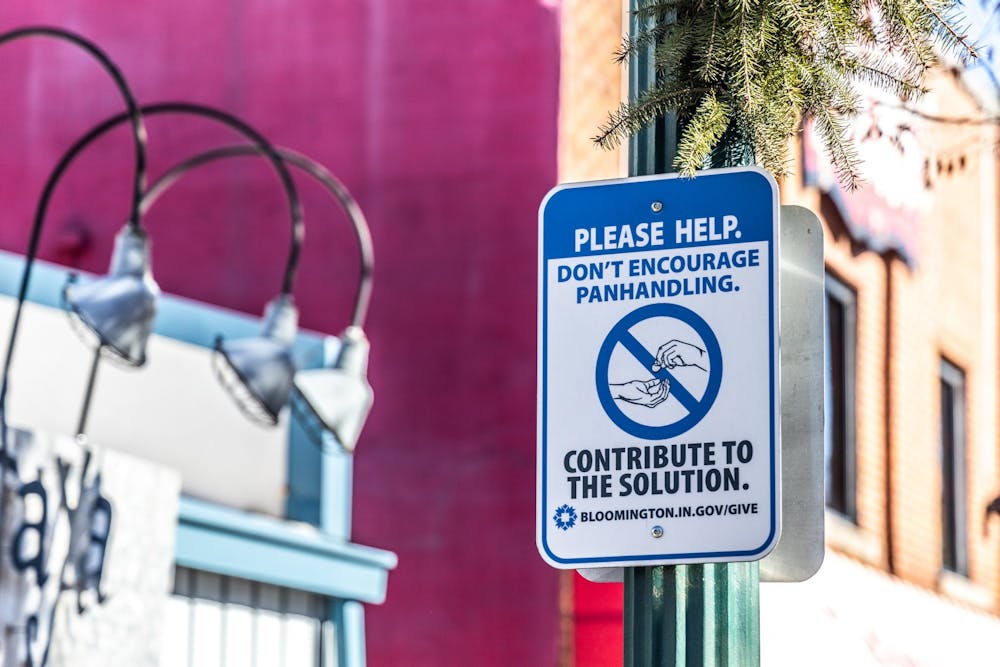Beacon, a nonprofit organization providing housing and social services to Bloomington residents in poverty, recently identified increases in the amount of mental health and substance use cases in the unhoused community. Various agencies including the City of Bloomington and its Family Resources Department are responding to the uptick.
Executive Director of Beacon Rev. Forrest Gilmore said he hopes to address the issue, but the nonprofit doesn’t have clinically trained mental health professionals.
Without greater access to mental and primary health services, Gilmore said there could be several overdoses and an increased risk of death for the unhoused community of Bloomington as has happened in previous years.
“We have case managers who try to give access to mental health services as best as they can primarily through Centerstone,” Gilmore said. “We’re not a mental health facility or recovery center. We’re a homelessness and housing service provider.”
Centerstone is a healthcare organization with mental health and services for all ages and conditions.
According to a data measured since 2017, Gilmore said the number of unhoused people in Monroe County who identified as having a mental health condition increased by 127%. In the same time frame, the number of those living unhoused with a substance use disorder increased by 140%.
“Mental health and substance abuse issues became more prevalent,” Gilmore said about a collection of data ranging from 2017 to 2021.
Last year, Beacon opened a temporary shelter to cope with the winter conditions and the influx of people in unhoused communities. However, Gilmore said the nonprofit won’t open a new shelter this winter.
Gilmore said that Beacon is less concerned in finding a new shelter because finding temporary locations proved difficult and the overall number of people in the unhoused community didn’t increase drastically over the past 5 years. However, Gilmore said counting the exact number of people in the unhoused community is difficult and many often go unaccounted.
Beacon said their nonprofit model aspires to bring services to anyone who enters the center. Gilmore said the services help those with more critical health conditions when it’s difficult to access psychiatric care or afford other forms of health care in the local area.
Gilmore said alleviating the problem would require collaborating with volunteers and political organizations to provide further access to health care services.
Beverly Calendar-Anderson, director of the City of Bloomington Community and Family Resources Department, said in an email that the department supported Indiana governmental committees trying to resolve the increased need in the community for food and childcare services.
She said the city manages the Downtown Outreach Grants to help finance organizations and agencies that provide a communal service. Without insurance, she said, people can reach out to Bloomington Healthnet for medical care. In January, this organization will go into the community and help those in need by providing immediate medical assistance. Calendar-Anderson said she encourages organizations to check the grant cycle.
“If an organization is in need of funding for medical-related issues for the unhoused, it may be considered for one of the city's grant cycles or directed to a more appropriate funding source,” Calendar-Anderson said in an email.
Micheal Whiteside, a social worker and a coordinator of IU’s Let’s Talk program, said a lack of resources can also contribute to an increase in mental health and substance abuse.
“People who have experienced homelessness can be in so much pain that sometimes survival consists of simply just trying to escape the pain,” Whiteside said.
Whiteside said he works with Let’s Talk, a multicultural outreach program on campus that focuses on ensuring minorities are included in mental health awareness conversations and have a safe place to talk about sensitive topics.
He said a similar program could be created for the city at large. Whiteside said he recognized some of the local shelters already had people with clinical and/or social working experience. They can work toward identifying the type of available assistance a person experiencing homelessness might need.
“Mental health and homelessness are very serious things,” Whiteside said. “The two are not always mutually exclusive. People experiencing homelessness are people first, homeless second.”



